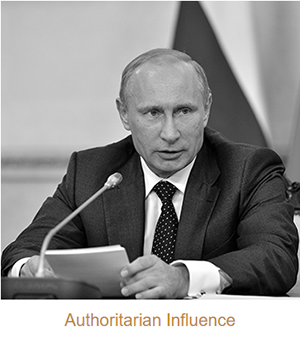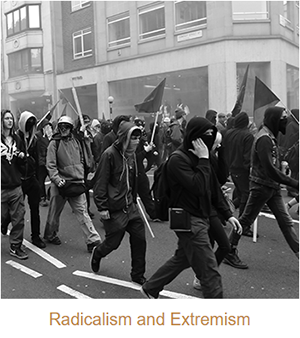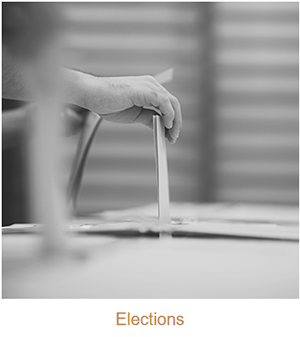Anchored in values, respecting facts – The first 20 years of Political Capital
Our 20th birthday could be a private matter. It is not (only) that because our two decades is about the Hungary – and, we believe, the world – that we have been analyzing over these years. Our environment has changed a lot, but our values have not: We are committed to a parliamentary democracy, free-market economy, Euro-Atlantic orientation, and human rights. These values were considered banally consensual in Hungary twenty years ago, but today, they are in many ways an antithesis of contemporary politics. Naturally, everyone changes during two decades, our work, focus, role have done so, too. However, respect for facts remains constant: There is no conviction or interest that would justify manipulating facts to us.
“It is not your job to declare whether something is right or not.” This is the sentence many have told us when Political Capital launched an initiative rooted in its values in the past 20 years. It was often added that “your job is analyzing the situation independently of political parties or values.” We, however, have always said that
there is independence from political parties, but not from values.
Our values have always been clear, but it has never overwritten respect for facts. We were never fans of analyses intended to fulfill “desires,” regardless of whether we worked for the public or our clients. Data, numbers rarely show a black-and-white picture, and our belief is that the duties of analysts include stating facts, even if they are painful to many. If, in contrast, a think tank becomes a part of a political propaganda machine, it – first – deceives its audience and – second – gives up the most important value of all: intellectual independence.
This independence must be protected even if an institute works with official or political organizations – which is natural, since nobody is working in an empty space. It is not a secret that Political Capital itself had been searching for the delicate balance between political analyses for the public and political advisory work before 2010. While our efforts were not without fault, we managed to maintain the integrity of our analytical work, and after 2010 we started focusing increasingly on our public analyses.
This is not the only reason why it is hard to always be consistent. We can presumably clarify this statement if we explain when and why we started focusing on various issues, which may have made us trendsetters in certain fields.
 Many did not understand, for instance, when we warned the public about the Kremlin’s influence over the European far right in 2009 – well before this became common knowledge. This was highlighted by one of the main experts on the topic, Anton Shekhovtsov, in his book. We noted the dangers of Russia’s energy policies in relation to the acquisitions of Surgutneftegas. We presented the Russian autocratic regime’s increasing influence as a threat to European integration and national sovereignty. Let’s remember: These were times when Viktor Orbán still talked about Putin’s servants running around in Europe. Authoritarian influence has since become one of our main areas of expertise. Sadly, we cannot expect researching this issue to become redundant in the future.
Many did not understand, for instance, when we warned the public about the Kremlin’s influence over the European far right in 2009 – well before this became common knowledge. This was highlighted by one of the main experts on the topic, Anton Shekhovtsov, in his book. We noted the dangers of Russia’s energy policies in relation to the acquisitions of Surgutneftegas. We presented the Russian autocratic regime’s increasing influence as a threat to European integration and national sovereignty. Let’s remember: These were times when Viktor Orbán still talked about Putin’s servants running around in Europe. Authoritarian influence has since become one of our main areas of expertise. Sadly, we cannot expect researching this issue to become redundant in the future.
 We’ve already touched upon the far right: It became clear early on that they constitute one of the main threats to Hungarian democracy and national security. This was crystal clear already when there were no far right parties represented in the Hungarian National Assembly.
We’ve already touched upon the far right: It became clear early on that they constitute one of the main threats to Hungarian democracy and national security. This was crystal clear already when there were no far right parties represented in the Hungarian National Assembly.
We developed the Right-Wing Extremism Index (DEREX) in 2010, which has since become quoted by numerous social scientists both in Hungary and abroad. DEREX measures the proportion of citizens in a given society who might be susceptible to certain far-right ideas and the political activities related to them. Later, we created teaching materials, argumentation guidelines, trainings to help combat extremist views. We developed a research methodology to measure political violence in the frames of the EU program aimed to prevent hate crimes (ISEC). We have mapped the far-right scene numerous times, evaluated extremist narratives, researched the characteristics of anti-Roma and anti-Semitic, or xenophobic attitudes, and we also addressed prejudice against refugees or the LGBTQ community. When we warned about the possibility of the latter topic being turned into a taboo by the political domain even before 2010, we did not think that in 2021, a law would ban the “depiction” of homosexuality in 2021.
 When we began our journey, we also did not think that we would be living in a world where everyone could have not only an alternative view, but their own alternative facts, too. Disinformation campaigns questioning or rewriting reality have led to uncertainty, confusion in all aspects of life, which is why it became unavoidable to make this topic one of the cornerstones of our work. In a world where we cannot even agree on the existence of facts, political dialogue becomes impossible, tribalism becomes stronger, and democracy fails. In the beginning, we focused on showing the negative effects of domestic and international manipulative campaigns, but later we took on a more active role in combatting disinformation. We wrote one of the first Hungarian-language guides on disinformation, held media awareness trainings, and launched – once again one of the first – fake news quizzes in the country. During COVID-19, we revealed disinformation campaigns threatening human lives. Encouraging fact-based debates have become our mission, in which the disinformation campaign waged against us only made us stronger.
When we began our journey, we also did not think that we would be living in a world where everyone could have not only an alternative view, but their own alternative facts, too. Disinformation campaigns questioning or rewriting reality have led to uncertainty, confusion in all aspects of life, which is why it became unavoidable to make this topic one of the cornerstones of our work. In a world where we cannot even agree on the existence of facts, political dialogue becomes impossible, tribalism becomes stronger, and democracy fails. In the beginning, we focused on showing the negative effects of domestic and international manipulative campaigns, but later we took on a more active role in combatting disinformation. We wrote one of the first Hungarian-language guides on disinformation, held media awareness trainings, and launched – once again one of the first – fake news quizzes in the country. During COVID-19, we revealed disinformation campaigns threatening human lives. Encouraging fact-based debates have become our mission, in which the disinformation campaign waged against us only made us stronger.
 Since 2006, all our initiatives related to the electoral system aimed to encourage fair competition, which were the results of our commitment to a pluralist democracy. 2013 marked the last year when our expertise-based criticism encouraged decision-makers to act, and before then, multiple recommendations we had made became a part of the electoral system (e.g., the abolition of “campaign silence”, repealing the nomination slip system, and daily updates to the registration database of mail-in voters). Today it feels almost unbelievable that in 2008 Political Capital and Századvég Foundation made a joint recommendation on rethinking and reregulating referenda. We still believe those recommendations would work well. It is not us who changed.
Since 2006, all our initiatives related to the electoral system aimed to encourage fair competition, which were the results of our commitment to a pluralist democracy. 2013 marked the last year when our expertise-based criticism encouraged decision-makers to act, and before then, multiple recommendations we had made became a part of the electoral system (e.g., the abolition of “campaign silence”, repealing the nomination slip system, and daily updates to the registration database of mail-in voters). Today it feels almost unbelievable that in 2008 Political Capital and Századvég Foundation made a joint recommendation on rethinking and reregulating referenda. We still believe those recommendations would work well. It is not us who changed.
PC’s values have not changed for two decades: We are committed to a parliamentary democracy, free-market economy, Euro-Atlantic orientation and human rights. We make this clear in even larger fonts on the main page of our organization.
In 2001, this neither needed to be explained, nor painted on the wall; every party except for marginal extremists, every institute, every civil society organization, every meaningful opinion-leader and the vast majority of Hungarians believed in these. Political Capital’s founders may not even have thought about having to defend these values, and especially not that a think tank could play such a key role in it. However, today, we are at the point where those who work along the values listed above are labelled as the defenders of democracy against an increasingly authoritarian regime by one half of the country, and declared to be the foreign-controlled enemy of the existing system by the other half. We have always believed these values are the natural state of things. We are proud that we have always been able to look in the mirror in the past 20 years, and want to do the same 20 years from now, too.
In today’s Hungary, it seems like labels are unavoidable, but we cannot identify ourselves with either one. Think tanks’ natural place is in democracies, which is being downgraded in front of our eyes. Many are adjusting to the environment as chameleons, but we never considered this to be an option. We are not alone in this: There are numerous great journalists, CSOs, rights defenders, teachers and researchers in contemporary Hungary who do not make the “necessary” compromises in a deteriorating environment.

In this less democratic environment, it is only becoming even more important to:
- contribute to critical thinking in politics, a better understanding of politics,
- encourage information- and fact-based policy-making and public discussions,
- raise political issues that have a direct or indirect impact on the everyday lives of citizens.
We do not stand and have never stood outside of politics in some sort of clear air, but it does not make us belong to any political camps, maybe except for those who are fighting against political divisions and tribalism. Although there are fewer and fewer partners for debate and dialogue reaching across various worldviews (and pitting them against each other), we continue to believe that the world is not always black-and-white, and it is pointless to view it through monochrome glasses. However, when we face an attack threatening our basic values, we talk plainly and we do not give in to the attraction of analytical “whitewashing” seeking to avoid conflicts.
Instead of commenting on the daily fights of political actors, as we have done before, we agree that we do not have to be an expert in everything, and we try to focus on deepening our knowledge in certain fields. The main ones are: disinformation, authoritarian influence, radicalism, the EU, and the electoral system. We are proud that we have been able to work together with dozens of domestic and international – mainly European and American – partners (foundations, private firms, and public institutions). We are also proud that our audience goes far beyond Hungary: Political Capital is the most quoted Hungarian think tank in the international press.
We address topics that we believe to be relevant to Hungary and Hungarian society. We have been following our own values and professional goals in the past two decades, nothing else.

